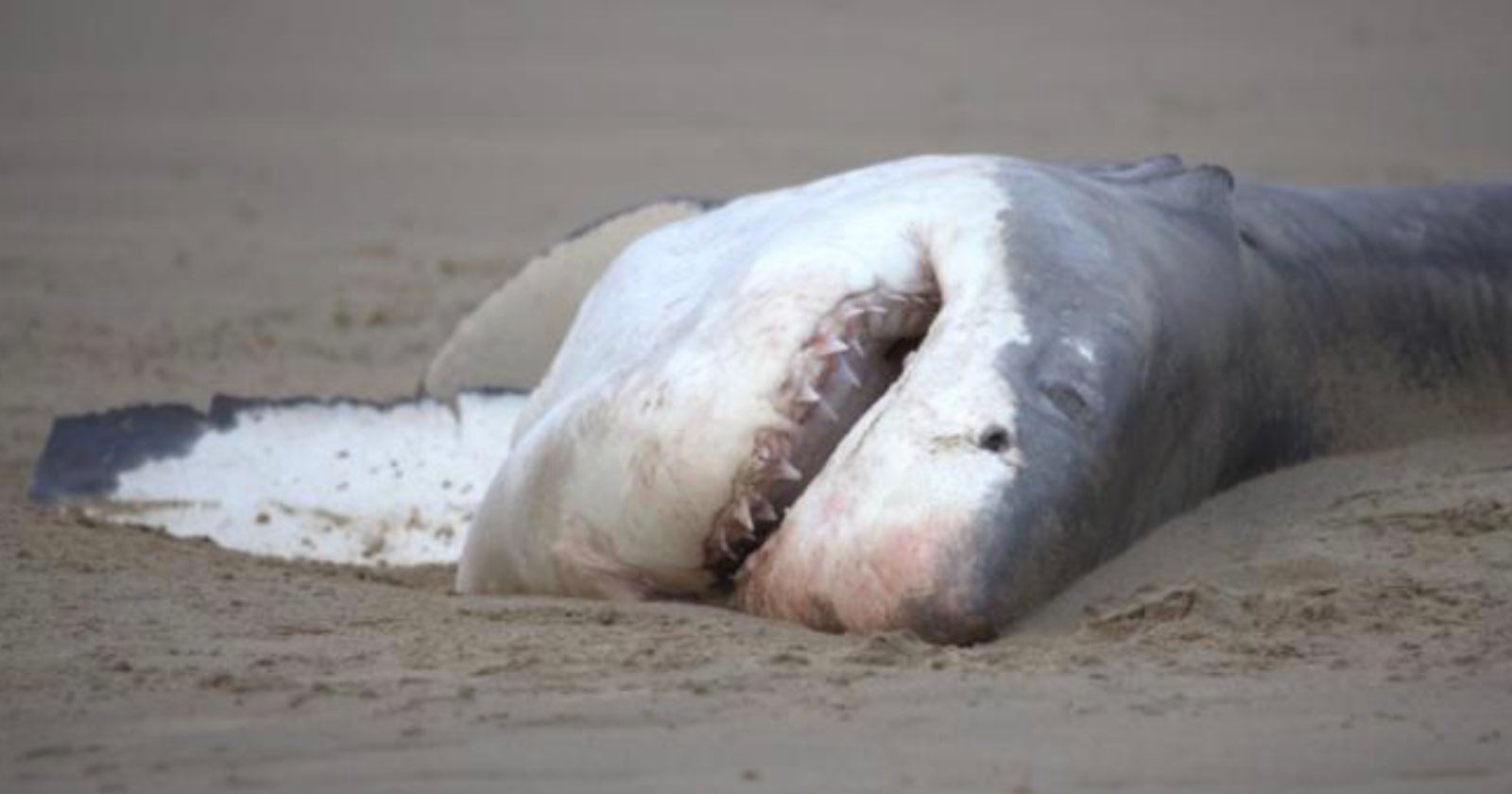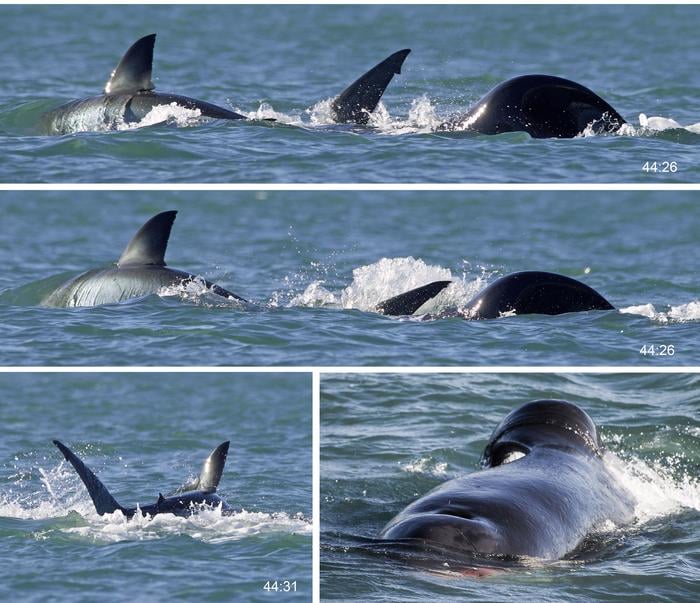‘Unprecedented’ Footage Shows Lone Orca Kill Great White Shark in Two Minutes
A solitary orca, or killer whale, has been filmed hunting and killing a great white shark in two minutes in an “unprecedented” and “astonishing” attack.
Scientists published dramatic footage of the incident which took place off the coast of Mossel Bay in South Africa at around 15:00 on 18 June 2023.
The scientists’ video of the attack, which is considered to be one of the most extraordinary predation events ever witnessed, has amassed over 1.5 million views on YouTube in two days.
Previously, two to six orcas have been seen working together and hunting great white sharks in packs. Furthermore, these attacks have taken around two hours.
But on this occasion, it took a single orca just two minutes to annihilate a juvenile great white shark that is believed to have weighed around 220 pounds (100kg).

This groundbreaking footage is the first known instance of a lone orca taking down a great white shark with no assistance from other hunting partners.
“The astonishing predation, off the coast of Mossel Bay, South Africa, represents unprecedented behavior underscoring the exceptional proficiency of the killer whale”, says Dr. Alison Towner from Rhodes University, who led an international research team into the discovery.
How a Solo Orca Killed a Great White Shark in Two Minutes
Researchers say that the killer whale’s “remarkably rapid” display of predatory prowess unfolded from the moment the orca “gripped the left pectoral fin of the shark and thrust forward with the shark several times before eventually eviscerating it.”

Within a matter of minutes, the lone killer whale emerged again with “a bloody piece of peach-colored liver in its mouth.”
According to the scientists, the orca appeared to plunder and eat the shark’s liver and discard the rest in the two-minute time frame.
In a study, published in the African Journal of Marine Science, researchers suggest the footage offers insights into the predatory behavior of orcas, suggesting that their hunting strategy of plundering great whites for their nutrient-rich livers could be driving sharks away from certain areas along the coast around Cape Town, South Africa.
The livers of great whites are massive organs, comprising about a third of their body mass, and rich in lipids. The orcas discard the remainder of the carcass, exhibiting selective feeding behavior observed in other carnivores like harbor seals, brown bears, and wolves.
Image credits: All photos by Christiaan Stopforth, Drone Fanatics SA.